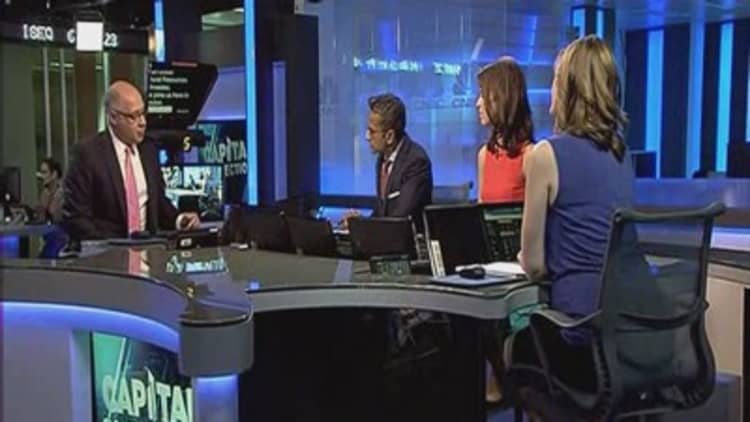
The investment firm that triggered a massive share price crash for Glencore this week with a gloomy report believes it's too early to relax over the commodity giant's financing.
On Wednesday, Glencore reassured investors that it had $50 billion in short-term credit lines from over 70 lenders to back its trading business. But Jeremy Wrathall, head global natural resources at Investec, warned the Anglo-Swiss firm's good relationship with banks can't be relied on to obtain financing.
"In other situations, we've seen banks lose confidence very quickly. That's the key issue facing companies like Glencore, where suddenly bank confidence evaporates overnight. That hasn't happened yet, but if commodity prices continue to fall, we'll see what happens," he told CNBC on Friday.
A note released by Investec analysts on Monday questioned whether there was any equity value left in Glencore as a result of its high debt load. The widely-circulated report saw Glencore's London-listed shares crash 29 percent on Monday, followed by another 27 percent slide in Hong Kong Tuesday.
"Our report hit a raw nerve with a lot of people since it highlighted how heavily indebted some of these mining companies are," Wrathall said.
Read MoreShould you fear a 'Glencore' moment?
He notes that many companies borrowed heavily when cash was plentiful in the years that followed the global financial crisis. Now that borrowing costs are on their way up, these companies are feeling the strains.
"That is having a profound impact on companies with very large debt positions. Glencore seems to be the one that everyone is focused on; there are others out there as well. If you look at other resource companies, their credit default swaps (CDS) are telling you there's a big problem."
It now costs $829,490 a year to protect $10 million of Glencore's debt for five years, up from $210,520 earlier this year, according to Reuters data. The corresponding cost for BHP Billiton is $129,350.
Analysts have rushed to Glencore's defense this week, citing factors such as the firm's ability to sell assets, but Wrathall warned that even those sales would be "extremely painful."
"It's all too fine to say that we'll pay down debt by selling assets but with asset sales goes loss of earnings. Analysts are battling as to what out what effect that will have on Glencore and other companies going forward."
As to speculation whether mining rivals such as Rio Tinto may sweep in to buy Glencore's businesses, Investec was skeptical. A year ago, Glencore attempted to merge with Rio for $150 billion in what would have created the world's biggest integrated commodities company.
"Rio has always prided itself on having low cost operations, Glencore's operations tend to be higher cost so it would be unusual for Rio to acquire Glencore's businesses in my view, but nothing is out of the question now. We are seeing a cathartic change in the mining industry."

